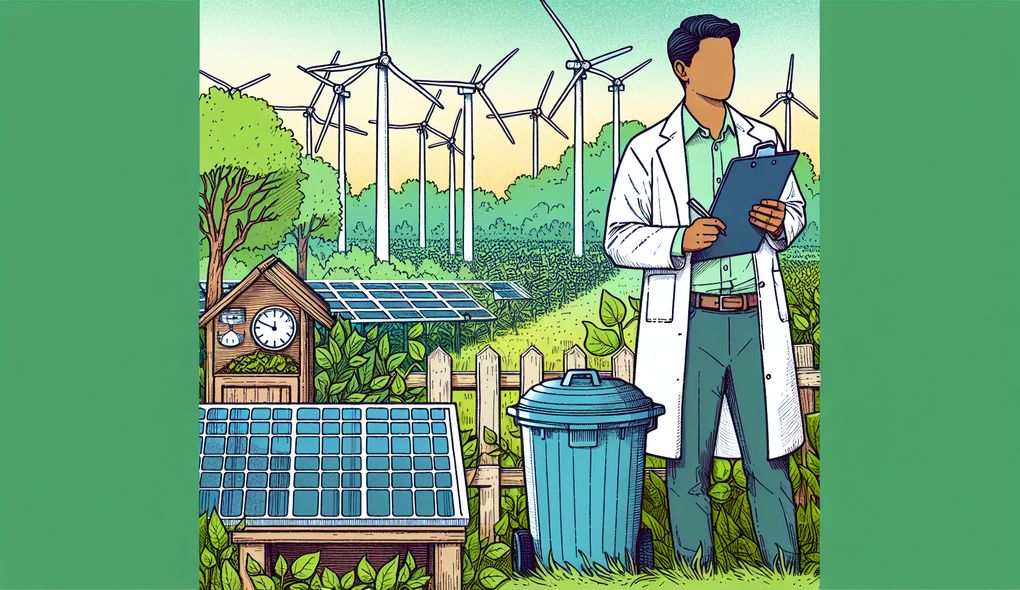What strategies do you use to effectively communicate complex research findings to non-technical stakeholders?
SENIOR LEVEL

Sample answer to the question:
When communicating complex research findings to non-technical stakeholders, I employ several strategies to ensure effective understanding. First, I simplify complex concepts by breaking them down into layman's terms and using relatable examples. This helps to bridge the gap between technical jargon and everyday language. Additionally, I utilize visual aids such as charts, graphs, and infographics to present data in a clear and concise manner. Visual representations enhance comprehension and make the information more digestible. Furthermore, I always prepare ahead of time by anticipating potential questions and concerns. This allows me to address them proactively during the presentation, fostering an open and collaborative dialogue. Lastly, I emphasize the practical implications of the research findings and connect them to the stakeholders' objectives and interests. By relating the research to real-world impact, I can engage the stakeholders and demonstrate the value of the findings.
Here is a more solid answer:
When communicating complex research findings to non-technical stakeholders, I employ several strategies that have proven to be effective. Firstly, I simplify complex concepts by breaking them down into relatable examples and using everyday language. For example, when explaining the concept of carbon footprint, I compare it to a personal bank account where carbon emissions are similar to withdrawals. This analogy makes it easier for stakeholders to understand the environmental impact of their practices. Secondly, I use visual aids such as charts, graphs, and infographics to present data in a visually appealing and easy-to-understand format. I have found that visual representations help stakeholders grasp key insights quickly and retain the information better. Additionally, I always prepare ahead of time by anticipating potential questions and concerns. This allows me to address them proactively during the presentation, fostering an open and collaborative dialogue. For instance, during a recent presentation on renewable energy, I anticipated concerns about the cost and scalability of renewable technologies. I prepared data and case studies that addressed these concerns, showcasing successful renewable energy projects with a positive return on investment. Lastly, I emphasize the practical implications of the research findings and connect them to the stakeholders' objectives and interests. By highlighting how the findings align with their goals and contribute to their success, I can engage stakeholders on a deeper level and demonstrate the value of the research. Overall, these strategies have enabled me to effectively communicate complex research findings to non-technical stakeholders.
Why is this a more solid answer?
The solid answer expands on the strategies mentioned in the basic answer by providing specific examples. It also explains how the candidate anticipates potential questions and concerns by preparing data and case studies. However, it can further improve by including information on how the candidate tailors the communication style to different stakeholder groups.
An example of a exceptional answer:
Effectively communicating complex research findings to non-technical stakeholders requires a tailored approach that addresses the unique needs of each stakeholder group. To ensure effective understanding, I begin by thoroughly understanding the stakeholders' background, knowledge level, and objectives. This allows me to customize my communication style to best resonate with their interests and align with their goals. For instance, when presenting research findings to executives, I focus on high-level summaries and stress the financial implications and competitive advantages of implementing sustainable practices. On the other hand, when engaging with operational teams, I delve into more technical details and highlight the practical implementation steps that can be taken. In addition to tailoring the communication style, I also leverage storytelling techniques to make the research findings relatable and memorable. By weaving narratives around the data, I captivate the stakeholders' attention and create an emotional connection. For example, when discussing the impact of deforestation, I share personal stories of individuals whose livelihoods are affected, creating empathy and motivating action. Furthermore, I supplement my presentations with interactive workshops and hands-on activities to further enhance engagement and facilitate a deeper understanding of the research. By incorporating collaborative exercises, such as group discussions and brainstorming sessions, stakeholders can actively contribute their perspectives and feel ownership of the research findings. Overall, through a tailored approach, storytelling techniques, and interactive workshops, I consistently deliver complex research findings to non-technical stakeholders in a way that fosters understanding, engagement, and action.
Why is this an exceptional answer?
The exceptional answer goes beyond the solid answer by highlighting the importance of tailoring the communication style to different stakeholder groups. It also introduces storytelling techniques and interactive workshops as additional strategies for effective communication. Additionally, it emphasizes the creation of an emotional connection and active engagement of stakeholders. A further improvement could be providing specific examples of interactive workshops and storytelling techniques used in past experiences.
How to prepare for this question:
- Familiarize yourself with the background and objectives of the non-technical stakeholders before the presentation.
- Simplify complex concepts by using relatable examples and everyday language.
- Utilize visual aids such as charts, graphs, and infographics to enhance understanding.
- Anticipate potential questions and concerns and prepare data and case studies to address them proactively.
- Tailor your communication style to resonate with the interests and goals of each stakeholder group.
- Incorporate storytelling techniques to make the research findings relatable and memorable.
- Conduct interactive workshops and hands-on activities to facilitate active engagement and deeper understanding of the research.
- Practice your presentation to ensure a confident and engaging delivery.
What are interviewers evaluating with this question?
- Excellent communication and presentation skills

